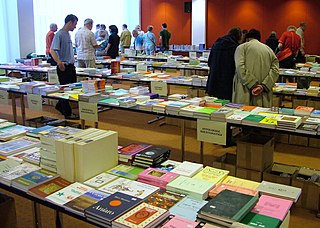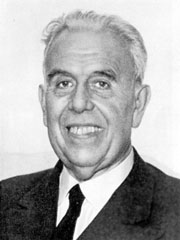
Esperanto is the world's most widely spoken constructed international auxiliary language. Created by L. L. Zamenhof in 1887, it is intended to be a universal second language for international communication, or "the international language". Zamenhof first described the language in Dr. Esperanto's International Language, which he published under the pseudonym Doktoro Esperanto. Early adopters of the language liked the name Esperanto and soon used it to describe his language. The word esperanto translates into English as "one who hopes".

The Universal Esperanto Association, also known as the World Esperanto Association, is the largest international organization of Esperanto speakers, with 5,501 individual members in 121 countries and 9,215 through national associations in 214 countries. In addition to individual members, 70 national Esperanto organizations are affiliated with UEA. Its current president is Prof. Duncan Charters. The magazine Esperanto is the main publication to inform UEA members about everything happening in the Esperanto community.

Literature in the Esperanto language began before the first official publication in Esperanto in 1887: the language's creator, L. L. Zamenhof, translated poetry and prose into the language as he was developing it as a test of its completeness and expressiveness, and published several translations and a short original poem as an appendix to the first book on the language, Unua Libro. Other early speakers wrote poetry, stories, and essays in the language; Henri Vallienne was the first to write novels in Esperanto. The first female Esperanto novelist was Edith Alleyne Sinnotte with her book Lilio published in 1918. Except for a handful of poems, most of the literature from Esperanto's first two decades is now regarded as of historical interest only.

William Auld was a British poet, author, translator and magazine editor who wrote chiefly in Esperanto.

Humphrey R. Tonkin is professor of English, and served as the 4th president of the University of Hartford. He is also a dedicated Esperantist.
William Main Page was a British lawyer and Esperantist.

Edmond Privat was a Francophone Swiss Esperantist. A historian, university professor, author, journalist and peace activist, he was a graduate of the University of Geneva and a lecturer for the World Peace Foundation. His collective works consist of original dramas, poems, stories, textbooks and books about the Esperanto movement.

Hector Hodler was a Swiss Esperantist who had a strong influence on the early Esperanto movement.

Vladimír von Szmurlo was a Russian Esperantist and railway engineer.
Montagu Christie Butler was a British academic, librarian, lexicographer, musician, and Esperantist. A winner of several prizes at the Royal Academy of Music in London, he was a harpist and a versatile music teacher skilled in playing various musical instruments, as well as a teacher of voice and of musical composition.

The President of the Universal Esperanto Association is the elected leader of the Universal Esperanto Association and the chief executive of the UEA steering committee (Estraro).

Victor Sadler (1937–2020) was a British-born Dutch Esperantist.

The World Esperantist Vegetarian Association is a voluntary association of Esperanto-speaking vegetarians. Founded in 1908, the group's working language is Esperanto, and it is the oldest international organization of vegetarians that is currently active. TEVA published a journal, Vegetarano ("Vegetarian") from 1914 to 1932, revived in 2009 as Esperantista Vegetarano, and has also operated a spirited Internet mailing list through Yahoo! Groups since 2005.

Peter Baláž, in Esperanto known as Petro, is an Esperantist, publisher and editor; he was selected as the 2012 Esperantist of the Year. Baláž lives in his hometown of Partizánske and speaks Slovak, Czech, German, Polish, Russian and English, as well as the international constructed language Esperanto.

Mark Fettes is an Esperantist and university professor of education, and former President of the World Esperanto Association, known by its Esperanto initials as UEA.

The Esperanto workers movement has the goal of taking practical advantage of the international language Esperanto for advancing the goals of the labour movement, especially the fight against unrestrained capitalism. It is not only a political movement in the strict sense but also a cultural and educational one. Currently the principal Esperanto associations active in the Esperanto workers movement at the global level are the Sennacieca Asocio Tutmonda and the Internacia Komunista Esperantista Kolektivo, and in a wider sense, the Monda Asembleo Socia.

The following outline is provided as an overview of and topical guide to Esperanto:

Julia Catharina Isbrücker-Dirksen was a Dutch esperantist, Honorary Member of the Universal Esperanto Association (UEA), member of the International Central Committee and of the examination committee, member of the Soroptimist Club, president of the group in The Hague and wife of the vice-president of UEA Johannes Rijk Gerardus Isbrücker.














